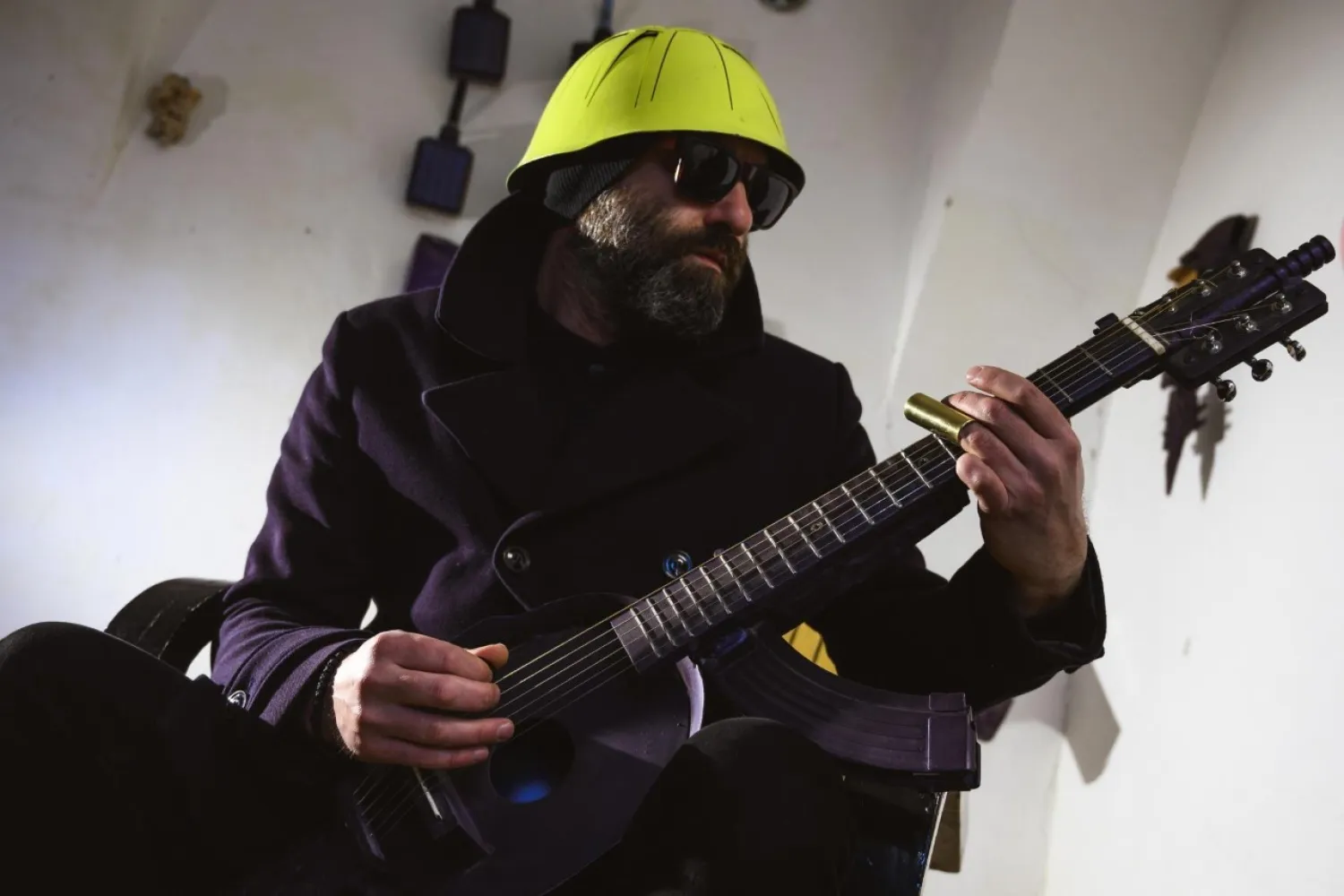Every week, Serbian sculptor Nikola Macura wanders through a messy military junkyard in search of sounds through discarded rifles, helmets and missiles.
He taps his knuckles on the decommissioned weapons to find pieces he can bring back to his studio and turn into musical instruments.
The 42-year-old is trying to transform these former tools of destruction into vessels of creation, in a region that still bears scars from the 1990s wars that unraveled Yugoslavia.
He has already successfully converted a bazooka and an army gas bucket into a cello, created a guitar out of a Zastava M70 rifle and a Yugoslav army helmet, and assembled a violin from an assault rifle magazine and a first aid kit, among others.
"Guns are all around us. We are so surrounded with destruction that we no longer notice it", said Macura, an assistant professor at Novi Sad Academy of Arts in Serbia's north.
There is a vast supply of material to work with: since the wars, depots selling decommissioned army equipment for pennies have become a common sight around the country.
These graveyards overflow with deactivated guns, bombs and gas masks, as well as combat vehicles, radars and even huge chunks of warplane.
The sculptor's goal is to create a full orchestra that would travel and play throughout the region, with war veterans serving as some of the musicians. "I aim to offer those people who participated in the war a chance to utilize the weapons they used to wage war to create music instead", he said.
He has already recruited veteran and visual artist Srdjan Sarovic, who likes to jam on the guitar made from a rifle and helmet.
"It disappears as a rifle and becomes exclusively a musical instrument. When I hold it in my hands and play it, all I worry about is how to align with the instrument," he told AFP. Macura's next project is turning an army tank into a percussion instrument for five musicians, which he plans to paint pink. "To make an instrument out of a tank, it's the same as making an instrument out of a rifle. Impossible," he laughed.









